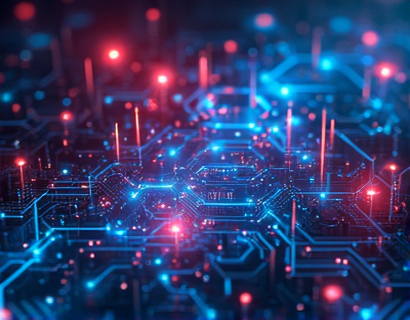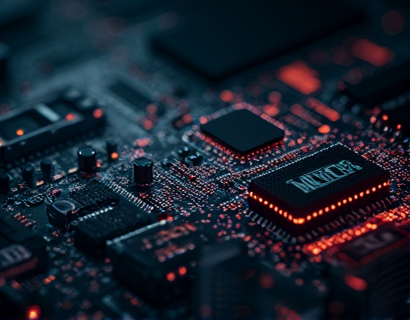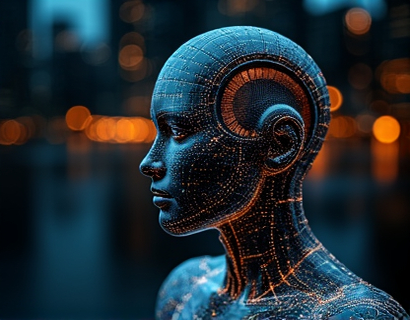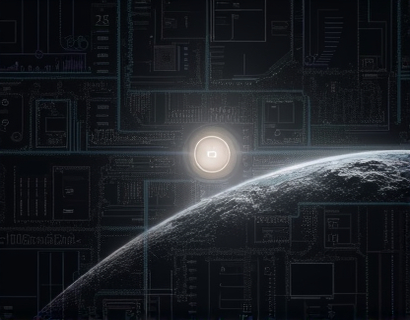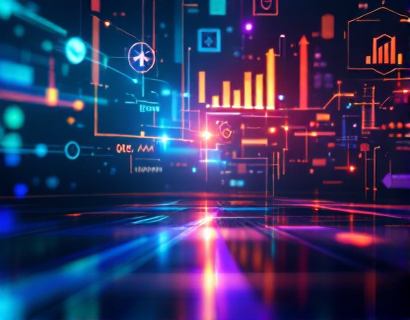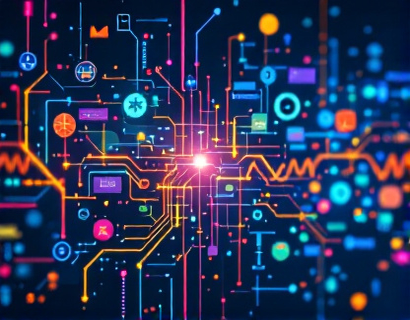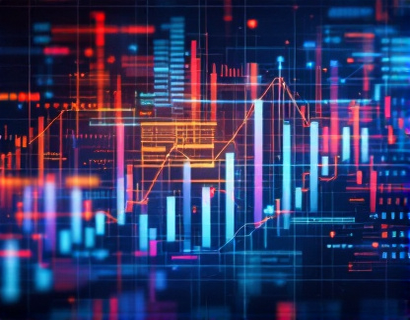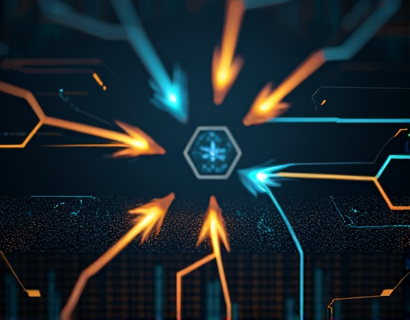Decentralized Productivity: Maximizing Efficiency with AI and Crypto in Ucosystem Applications
The integration of artificial intelligence (AI) and cryptocurrency into decentralized applications, commonly referred to as Ucosystem applications, is revolutionizing the way we approach productivity and digital workflows. This synergy offers a transformative approach to enhancing efficiency, security, and user experience. As technology continues to evolve, the potential of decentralized systems powered by AI and crypto is becoming increasingly evident, providing innovative solutions that cater to the needs of tech-savvy individuals and businesses alike.
Decentralized applications, or dApps, operate on blockchain networks, which are inherently transparent, secure, and resistant to censorship. When combined with AI, these applications can automate complex tasks, analyze vast amounts of data, and provide intelligent insights, all while maintaining the decentralized nature of the system. This combination not only enhances productivity but also empowers users by giving them greater control over their data and digital interactions.
Understanding Decentralized Productivity
Decentralized productivity refers to the use of decentralized technologies to improve and streamline work processes. Unlike traditional centralized systems where data and control are held by a single entity, decentralized systems distribute these elements across a network of nodes. This distribution ensures that no single point of failure exists, making the system more robust and reliable.
The adoption of AI in decentralized systems further amplifies these benefits. AI algorithms can process and analyze data from multiple sources, identify patterns, and make predictions, all of which can be leveraged to optimize workflows. For instance, AI can automate repetitive tasks, provide personalized recommendations, and enhance decision-making processes, thereby reducing human error and increasing efficiency.
AI in Decentralized Applications
AI plays a crucial role in decentralized applications by enabling smart automation and intelligent decision-making. Smart contracts, which are self-executing contracts with the terms directly written into code, can be enhanced with AI to perform more complex and dynamic tasks. For example, AI-driven smart contracts can adapt to changing conditions in real-time, ensuring that agreements are executed precisely as intended.
Moreover, AI can improve the user experience in decentralized applications by providing intuitive interfaces and personalized interactions. Natural Language Processing (NLP) and machine learning models can understand user intent and preferences, allowing for more seamless and efficient interactions. This is particularly beneficial in decentralized marketplaces, where AI can match buyers and sellers based on specific criteria and historical data, enhancing the overall trading experience.
Cryptocurrency and Decentralized Finance (DeFi)
Cryptocurrency is a key component of decentralized productivity, offering a secure and transparent medium for transactions. Decentralized Finance (DeFi) platforms leverage blockchain technology to provide financial services without intermediaries, such as banks or brokers. These platforms enable users to lend, borrow, trade, and invest in a trustless environment, all while benefiting from the security and immutability of blockchain.
In the context of productivity, DeFi can facilitate seamless financial transactions for business operations. For instance, smart contracts can automate payment processes, ensuring that transactions are executed only when predefined conditions are met. This reduces the risk of fraud and delays, making business operations more efficient and reliable. Additionally, decentralized lending and borrowing platforms can provide businesses with access to capital markets, enabling them to scale operations and invest in growth opportunities.
Enhancing Productivity with Ucosystem Applications
Ucosystem applications are designed to leverage the strengths of both AI and cryptocurrency to create a more efficient and user-friendly digital environment. These applications can range from project management tools to collaborative platforms, all built on decentralized principles and powered by AI-driven features.
One notable example is a decentralized project management tool that uses AI to optimize task allocation and resource management. The AI algorithm analyzes team performance, project timelines, and resource availability to assign tasks efficiently. This ensures that each team member is working on the most suitable tasks, reducing bottlenecks and increasing overall productivity. The use of blockchain ensures that all project data is transparent and immutable, providing a clear audit trail and enhancing trust among team members.
Another application is a decentralized content creation and monetization platform. AI can assist in content generation, editing, and optimization, while cryptocurrency and DeFi mechanisms enable creators to monetize their work directly, without intermediaries. Smart contracts can automate royalty payments, ensuring that creators receive fair compensation for their work. This not only empowers content creators but also fosters a more equitable and sustainable digital economy.
Security and Privacy in Decentralized Productivity
Security and privacy are paramount in decentralized productivity applications. Blockchain technology inherently provides a high level of security through its decentralized and transparent nature. Each transaction is recorded on a public ledger, making it difficult for malicious actors to alter or manipulate data. Additionally, the use of cryptographic techniques ensures that sensitive information remains secure.
AI can further enhance security by detecting and mitigating potential threats in real-time. Machine learning models can analyze network activity and identify anomalies that may indicate a security breach. This proactive approach to security helps protect user data and maintains the integrity of decentralized applications.
Privacy is another critical aspect, and decentralized applications can offer enhanced privacy features compared to traditional systems. Zero-knowledge proofs and other privacy-preserving techniques can be integrated into AI algorithms to ensure that user data is protected while still enabling useful insights and functionalities. This allows users to maintain control over their personal information, fostering greater trust and adoption of decentralized solutions.
Challenges and Future Prospects
Despite the numerous benefits, the adoption of decentralized productivity applications faces several challenges. One of the primary hurdles is the technical complexity associated with blockchain and AI technologies. Many users and businesses may find it difficult to navigate and implement these solutions without proper guidance and support.
Another challenge is scalability. Current blockchain networks often face limitations in terms of transaction throughput and processing speed, which can impact the performance of decentralized applications. However, ongoing research and development in blockchain technology, such as layer 2 solutions and sharding, aim to address these issues and improve scalability.
Looking ahead, the integration of AI and cryptocurrency in decentralized applications is poised for significant growth. As more developers and businesses recognize the potential of Ucosystem applications, we can expect to see a surge in innovative solutions that further enhance productivity and user experiences. The convergence of these technologies will likely lead to new paradigms in digital workflows, making decentralized systems more accessible and user-friendly.
Furthermore, the increasing adoption of Web3 technologies, which build upon blockchain and decentralized principles, will play a crucial role in shaping the future of decentralized productivity. Web3 applications will offer more intuitive and seamless interactions, bridging the gap between traditional and decentralized systems. This evolution will not only benefit tech enthusiasts but also mainstream users, making decentralized productivity a viable and attractive option for a broader audience.
Conclusion
The synergy of AI and cryptocurrency in decentralized productivity applications represents a significant leap forward in digital efficiency and user empowerment. By leveraging the strengths of blockchain and AI, these applications offer robust, secure, and user-friendly solutions that can transform various aspects of digital workflows. As the technology continues to mature and more solutions emerge, the potential for decentralized productivity to revolutionize the way we work and interact online becomes increasingly clear. Embracing these innovations can lead to a more efficient, transparent, and equitable digital future.




